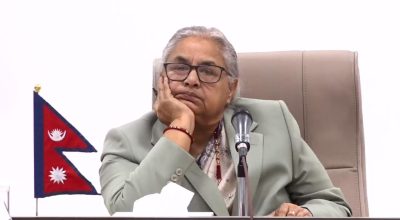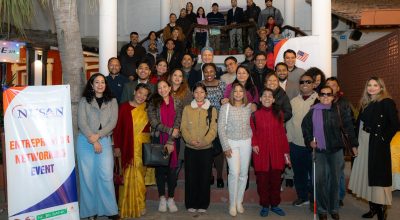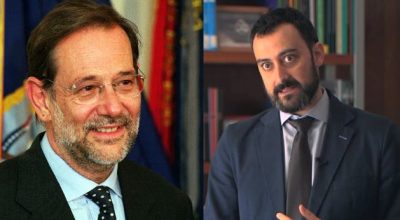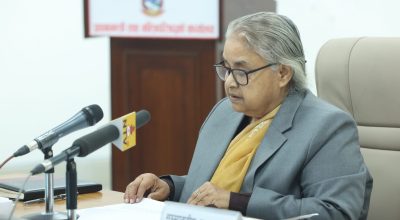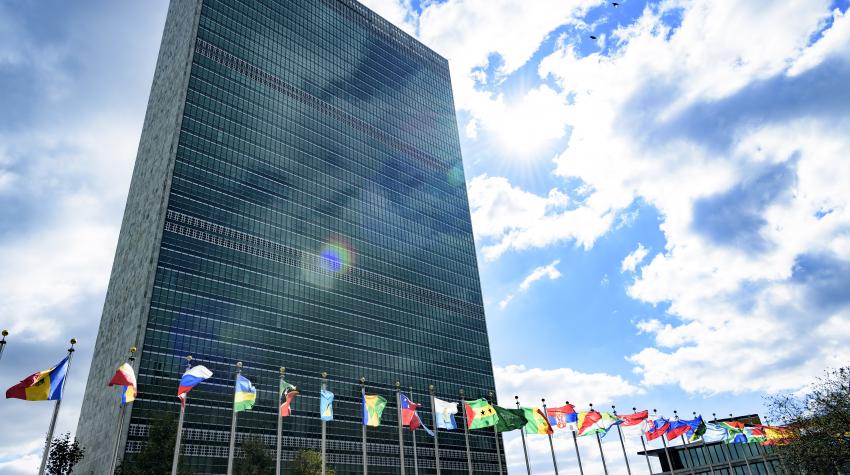
Since its foundation in 1945, the United Nations Organization (UNO) has been criticized for not working effectively to establish peace, security, and stability in many parts of the world. It is not a bad thing to criticize an incapable institution while it is not functioning well. Global experts and policymakers, clearly knew that it was the United States (US) that has always been creating hurdles to the efforts of UN.
Actually, the US wants to use UN as per its interest, roadmap, and mission. When UN tries to work independently of its side, the US creates unnecessary obstacles and difficulties, ignoring the expectation of the global community. Now the time is ripe for the global community to speak about the wrong approach of the US, and create a favorable environment for UN to work impartially and independently as per the requirement of the global situation
The United States has a long history of interfering with the efforts of the United Nations. One example of this interference is the US’s use of its veto power in the UN Security Council to block resolutions that are not in its interests. The US has used its veto power numerous times to prevent resolutions that would have condemned Israeli settlements in the West Bank or criticized its actions in the Gaza Strip. In 2018, the US vetoed a resolution that called for an investigation into the killing of Palestinian protesters in Gaza.
Another example of US interference is the country’s withdrawal from the UN Human Rights Council in 2018. The US cited the council’s alleged anti-Israel bias as its reason for leaving. However, the move was widely criticized as it left the council without one of its most influential members and weakened its ability to address human rights abuses around the world. The US also withdrew from the Paris Agreement on climate change in 2017, which was seen as a blow to the UN’s efforts to combat global warming.
The US’s withholding of funding from the UN has been another form of interference. The US is the largest contributor to the UN’s budget, providing around 22% of the organization’s funding. However, in recent years, the US has repeatedly threatened to withhold or reduce its funding, citing various reasons, such as the UN’s alleged bias against Israel or its failure to address corruption. These threats have put the UN’s finances in jeopardy and hampered its ability to carry out its mission effectively.
The United States has a long-standing opposition to making the United Nations powerful and effective. One reason for this opposition is the country’s belief in its own exceptionalism and sovereignty. The US has historically been wary of international institutions and has preferred to act unilaterally in its foreign policy. This preference for unilateralism has often clashed with the UN’s goal of promoting multilateralism and cooperation among nations.
Another reason for the US’s opposition to a powerful and effective UN is its perception of the organization as being anti-American. Many US politicians and pundits have accused the UN, or being biased against the US of promoting an anti-Western agenda. This perception has led the US to withhold funding from the UN, withdraw from key agreements and organizations, and ignore UN resolutions and recommendations. For example, the US has refused to ratify several UN conventions, such as the Convention on the Rights of the Child and the Convention on the Elimination of All Forms of Discrimination against Women, and has ignored UN resolutions on issues such as the Israeli-Palestinian conflict and the war in Iraq.
To help the United Nations work more effectively and avoid disturbing its operations, the United States can take several steps. First, the US should work to build stronger partnerships with other nations in the UN, particularly those with whom it has had strained relationships in the past. By building these partnerships, the US can help to promote greater cooperation and consensus-building within the UN, which will in turn help the organization to function more effectively.
Second, the US should fully commit to funding the UN and paying its dues on time. The US is one of the largest contributors to the UN’s budget, and its failure to pay its dues or to withhold funding can have a significant impact on the organization’s ability to carry out its mission. By paying its dues on time and providing adequate funding, the US can help to ensure that the UN has the resources it needs to effectively address global challenges such as poverty, hunger, and climate change.
Third, the US should work to strengthen and reform the UN so that it can better meet the needs of the 21st century. This could involve supporting efforts to streamline the UN’s bureaucracy, increase its transparency and accountability, and make it more responsive to the changing needs of the international community. By taking these steps, the US can help to ensure that the UN remains a vital institution for promoting peace, security, and development around the world.
To work independently and impartially without accepting US pressure, the United Nations can take several steps. The UN can strengthen its own institutional capacity to resist external pressure by improving its transparency, accountability, and governance mechanisms. This would involve measures such as developing clearer guidelines for decision-making, increasing transparency in budgeting and financial management, and enhancing the independence and effectiveness of its internal oversight and audit functions.
The UN can strengthen its partnerships with other key actors in the international system, including civil society groups, think tanks, and academic institutions. By building these partnerships, the UN can tap into a wider range of expertise and knowledge, which can help it to better resist external pressure and promote its independence and impartiality. It can also create platforms to amplify voices of other nations and regions who are less represented in the UN.
Similarly, the UN can promote greater diversity and inclusion in its own structures and decision-making processes. This would involve measures such as increasing the representation of women and minorities in senior leadership positions, developing stronger mechanisms for consulting with civil society and other stakeholders, and promoting a more inclusive and diverse culture within the organization. By taking these steps, the UN can better reflect the diversity of the international community and enhance its independence and impartiality in the face of external pressure.
In conclusion, the United Nations has a critical role to play in promoting peace, security, and development around the world. To fulfill this role effectively, the UN must be independent, impartial, and accountable, and must resist external pressure from powerful countries such as the United States. The UN should work for the global community by playing a balanced role that promotes the interests of all nations and peoples, rather than serving the interests of a select few. By doing so, the UN can help to build a more peaceful, prosperous, and just world for all.





